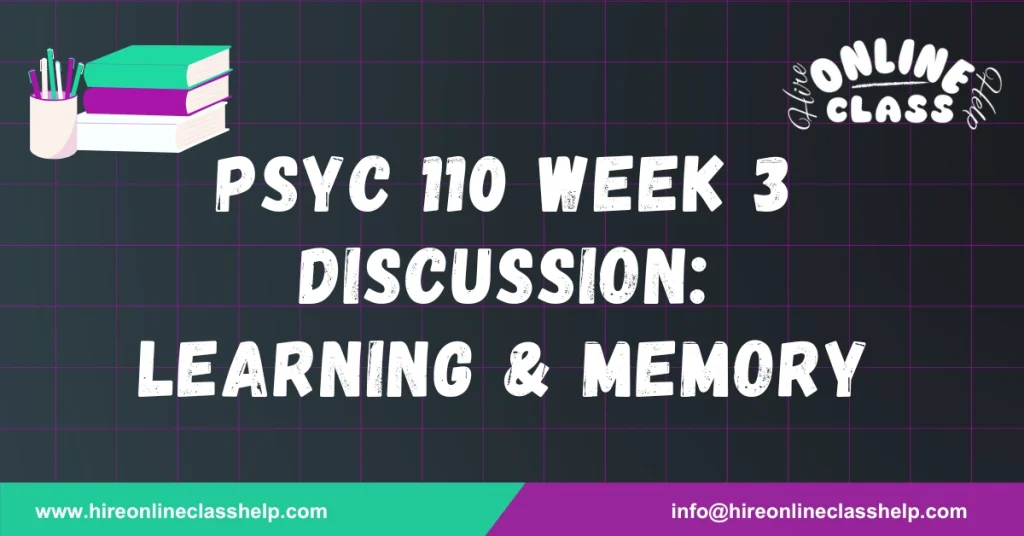






Name
Chamberlain University
PSYC-110: Psychology
Prof. Name
Date
Psychologists define learning as a relatively permanent change in behavior resulting from experience. To illustrate this concept through observational learning: a child (the observer) watches her older brother (the model) organizing his books. Their parents praise him for this task, and the child perceives this as a reward. As a result, she imitates his behavior by organizing her toys. While classical and operant conditioning are covered in the lesson on learned behavior, they are not the sole methods of learning, though they significantly impact our lives. Reflect on your own experiences with classical and operant conditioning and write a two-paragraph essay, each containing three examples from your life. For instance, you might notice that when you turn on a white noise machine at night, you start feeling sleepier due to classical conditioning. Alternatively, you could be cooking more dinners because you appreciate the praise from your family, showcasing operant conditioning.
Habituation occurs naturally when a stimulus is repeatedly presented. It is beneficial to become accustomed to common sounds or events in our surroundings. Identify three instances in your life where habituation has taken place and write a paragraph describing those experiences. For example, when you moved to a new house near train tracks, you may have initially been awakened by the train sounds at night, but over time, you became desensitized and were able to sleep through the night without noticing the trains.